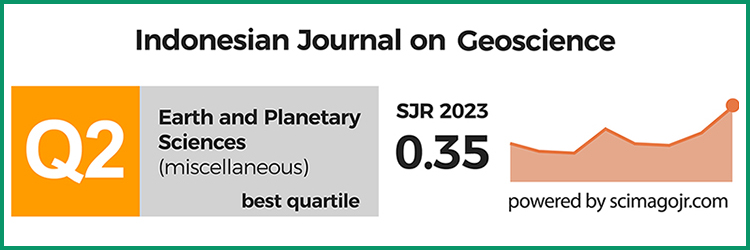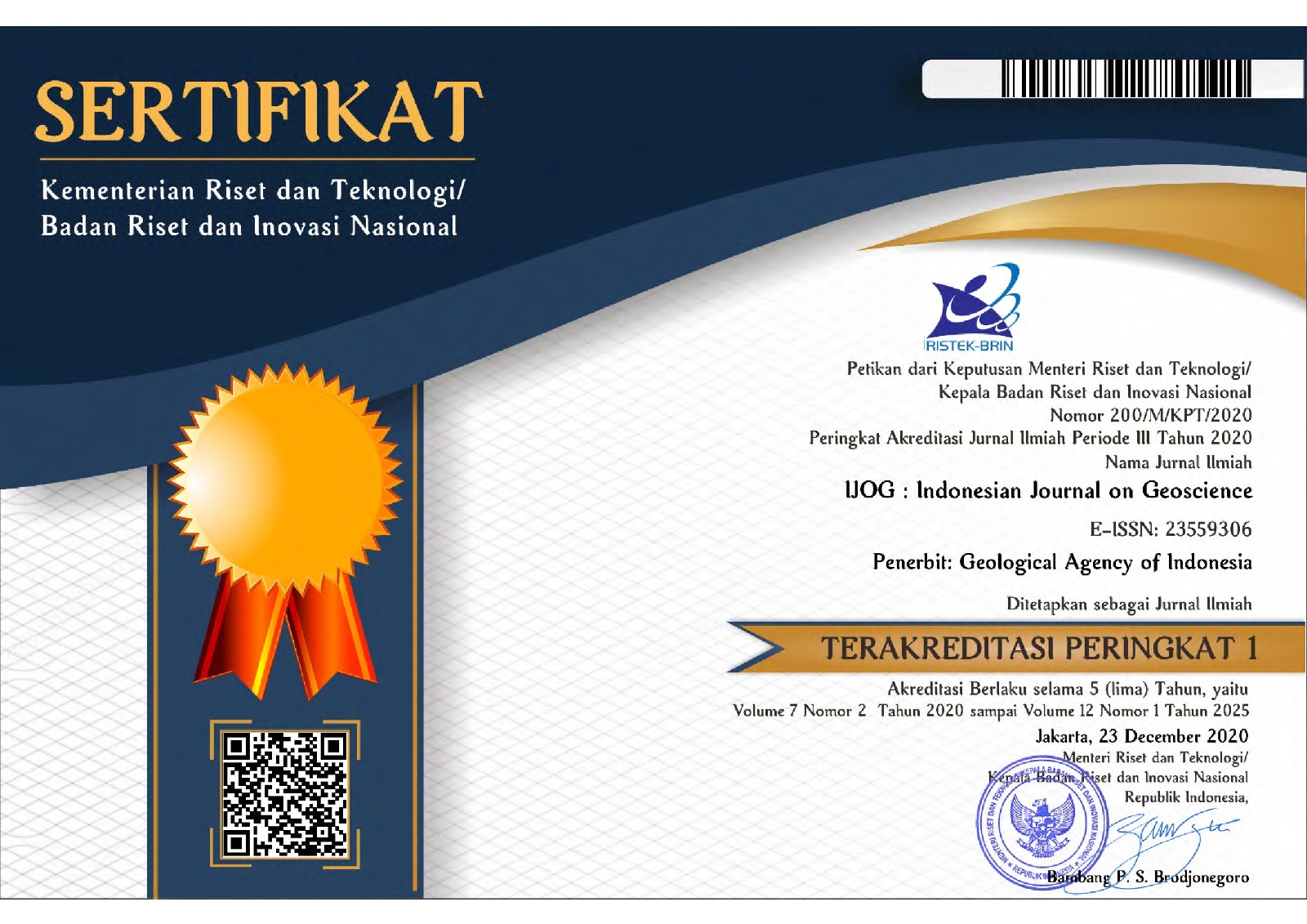Behaviour of Friction Resistance of Pile Groups on Clay Soil During Loading Tests: Case Study in Semarang and Temanggung, Central Java, Indonesia
DOI:
https://doi.org/10.17014/ijog.9.1.61-69Keywords:
Friction resistance, Depth foundation, Plies group, Clay soil, Moisture ContentAbstract
DOI:10.17014/ijog.9.1.61-69
Shear strength parameters influence the bearing capacity of pile foundations, i.e. internal friction angle (ϕ) and cohesion (c). Soil parameters are affected by water content, which can be altered by climate change. Clay soils have high swelling and shrinking potential, caused by changes in water content, and this can affect the failure of foundations. Analysis of the influence of moisture content on the friction resistance of piles needs to be carried out, especially in clay soils. This research uses laboratory experiments to model four piles, with diameters of 16 mm. The pile group models are modeled in soil samples taken from three different locations, i.e. Tembalang, Pengaron, and Pingit, in Central Java. The samples were treated (soaking and drying) for one, three, and seven days. The USCS categorization of the soil samples were OH (organic clay with medium plasticity) and CH (inorganic clay with high plasticity). Friction resistance in piles within soaking conditions, decrease in proportion to an increase in moisture content. On the other hand, friction resistance increases under drying conditions. However, the friction resistance of the soil that had been treated (by soaking and drying) was not equal to the initial conditions.



















